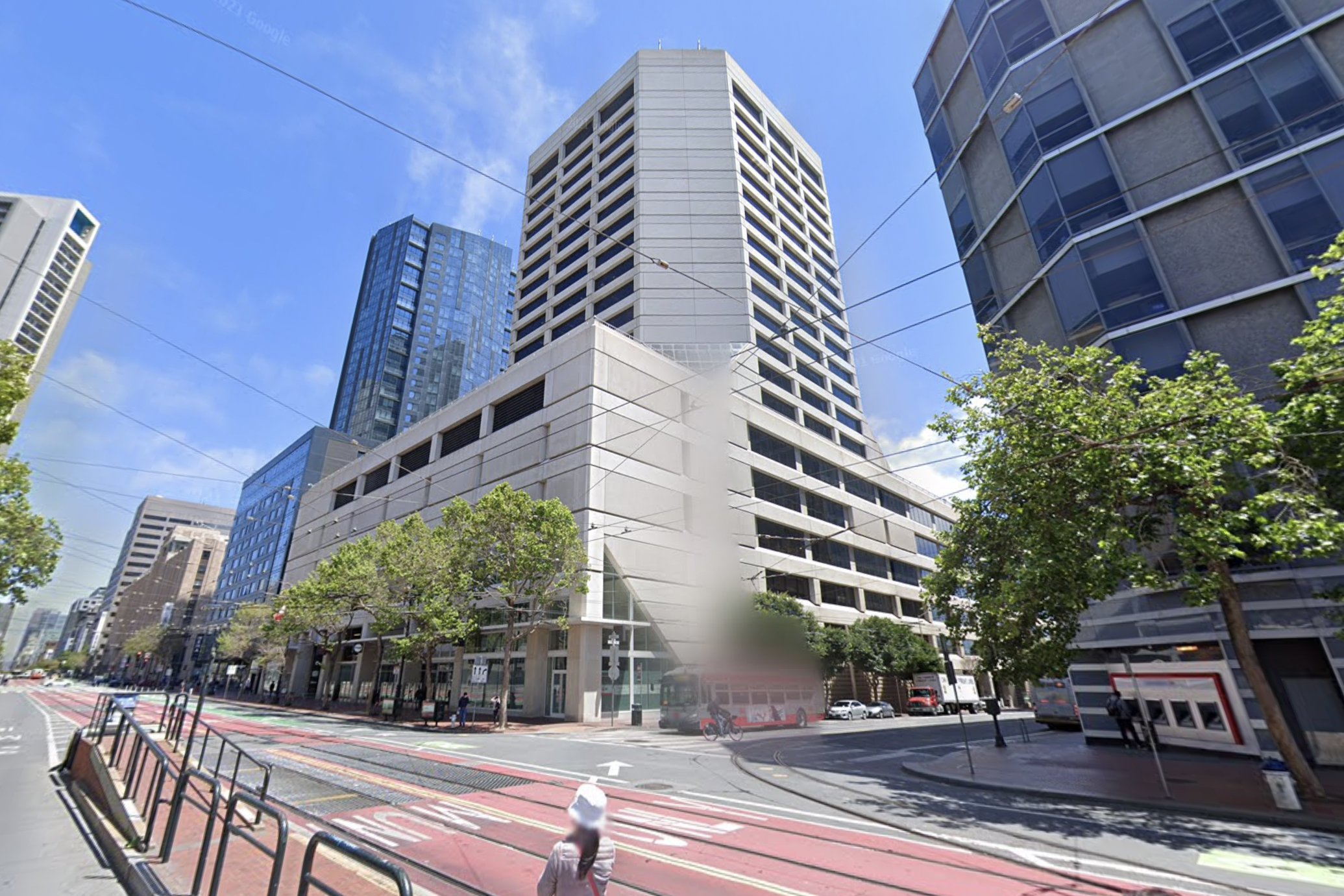A decision by Block—the company formerly known as Square—not to renew its lease at 1455 Market St. is yet another blow to a downtown business district that has been hollowed out during the pandemic.
The news may come as little surprise to careful observers of the company, which ditched San Francisco as its official headquarters space earlier this year in favor of a “distributed work model.” In a Feb. 24 regulatory filing, Block said it has supported a remote working model for years, but that the pandemic rapidly accelerated that transition, leading it to remove its designated San Francisco headquarters location and giving most of its employees the option to work from home full time.
Block’s decision to leave 1455 Market entirely, originally reported by the Chronicle, is just the latest example of a financial technology company choosing to vacate its main office in the city in recent years. These include Stripe’s decision to decamp to South San Francisco, PayPal’s closure of its 425 Market St. office, Credit Karma’s move to Oakland and cryptocurrency exchange Coinbase and startup credit card provider Brex transitioning to a remote-first model.
And it resurrected a years-long debate around whether San Francisco’s changing business taxes have caused some companies to sour on the city or leave entirely.
Block CEO Jack Dorsey and Stripe CEO Patrick Collison were among the most vocal opponents of Proposition C, a measure passed in 2018 that raised taxes on companies with more than $50 million in gross receipts, to fund homelessness services. In a tweet thread decrying the measure, Dorsey pointed to the “unfair” burden that fintech startups would be shouldering under the law versus larger software companies like Salesforce, writing that “taxes would grow at rates multiple times our adj. revenue, which no company can sustain.”
A Block spokesperson denied that the decision to vacate the office had anything to do with Prop. C. Instead, the representative said that after Block’s acquisition of AfterPay earlier this year, the company decided to consolidate space with AfterPay’s 760 Market St. location to cut redundant real estate costs.
Block has squared off with the city over its tax burden, arguing in a long-running lawsuit that it should be categorized as an information services company and subject to a lower tax rate. The city has now put financial services in the same category as information services; however, the overall business taxes for the two categories are calculated differently.
Under the current tax code, companies classified as large financial service firms have a top-level gross receipts tax rate of 0.784%, with an additional .6% tax rate on gross receipts over $50 million because of Prop. C.
Companies categorized as financial services firms also have their gross receipts tax rate directly tied to the proportion of their payroll (read: workforce) in the city. The upshot? Fewer workers in San Francisco means less local taxes paid.
Sujata Srivastava, the San Francisco director at SPUR, a public policy think tank, speculated the pandemic’s impact on work culture has played an outsized role in companies deciding to leave San Francisco.
“I don’t want to say the taxes don’t matter, but there are other structural issues at play as companies go more and more to remote work and not as many companies need to occupy the space in downtown San Francisco,” said Sujata Srivastava, the San Francisco director at SPUR.
Tax experts note that business relocation is the result of a complex calculus and it’s difficult to identify a single factor. But higher local taxes can mean an extra thumb on the scale for businesses evaluating their real estate.
“We see that, particularly in the current economic situation, businesses are looking at their cost structure, geographic footprint, remote work and how they’re hiring their workforce,” said Jeff Bellisario, executive director of the Bay Area Economic Institute. “Taxes are a part of that, but so are high housing costs.”
After the company’s 1455 Market St. lease expires in September 2023, Block will have two offices in San Francisco: an office on Mission Street in SF and the location at 760 Market St.
The company also occupies the Uptown Station development in Oakland, and said they are looking to open a small office in the South Bay to accommodate workers.
Disclosure: Michael Moritz, venture capitalist and initial investor in the SF Standard, contributed $100,000 to the No on C campaign.
